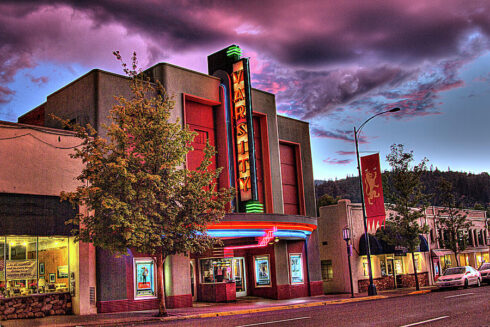Many students and community members know about the several locations at
Southern Oregon University where art is exhibited, however after a walk through of
the campus itself, one will soon realize that many artworks are installed throughout
as well. One of the most intriguing of these, is in the center of the campus, created of
stone.
We at the Siskiyou thought a story about the sculpture was worth looking into and
took to the campus to gain public consensus about the piece’s origin and purpose.
According to a 2008 Mail Tribune article, “The Third Eye Theater,” was created by
Dorbe Holden of Olympia, Wash., and purchased for the school through the Oregon
Percentage for the Arts program in 1998.
The Medford, Oregon newspaper presented the story on the piece when it was
moved to the SOU quad from student housing on Wightman due to it causing
injuries to children who were playing on it.
The Tribune included this quote, as well: “It feels like Stonehenge. It’s nice to have
something to look at instead of just grass,” said sophomore Tommy Hooper, after
doing handstands while his pals hopped around the arc of stones between classes.
Apparently the artist intended the piece to be an impromptu stage.
The Siskiyou’s consensus of students around campus lead to little information, but it
seemed that most were curious when questioned. One student said “Something
native? Put here when the school was built.” But quickly became curious himself:
“Can I answer your question with a question?“ He said, and added “Maybe it’s a
signal to UFO’s.”
Another student who was questioned about the piece seemed to know more: “It’s an
installation piece. They moved it from student housing. It’s about balance.”
“We are still left with so many questions” said Siskiyou reporter Brandon Overlock.
“Where is it from? What is its purpose?”
Overlock said that he was intrigued because of how easy it is to overlook. “Most
people just use it for seating” However it seems the more you examine the stone
work, the more complex and mysterious it becomes.



